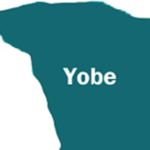The cash crisis in Nigeria continued to have a severe impact on business conditions in the private sector during March as the headline Purchasing Managers Index dipped to 42.3 points from 44.7 points reported in February.
The decline was the most pronounced since the survey began in January 2014, apart from at the time of the outbreak of the COVID-19 pandemic in 2020.
The PMI, which is a monthly survey by Stanbic IBTC Bank compiled by London-based market intelligence powerhouse S&P Global Platts and endorsed by the National Bureau of Statistics, noted that output and new orders fell more quickly than in February, while staffing levels and purchasing activity were scaled back again.
The report showed that while input costs and output prices continued to rise sharply, rates of inflation softened, with output prices increasing at the softest pace in almost three years, and suppliers’ delivery times shortening after having lengthened in February.
“As was the case in February, there were widespread reports from companies that customers were unable to commit to spending given cash shortages. This led to a substantial decline in new business, with the pace of contraction more pronounced than in the previous survey period.
The same picture was seen with regards to business activity, which decreased at a rate only exceeded in April and May 2020. All four broad sectors posted reductions in activity at the end of the first quarter,” it noted.
The report also indicated that Nigerian companies recorded a drop in stocks of purchases for the second successive month at the end of the first quarter of the year.

 Join Daily Trust WhatsApp Community For Quick Access To News and Happenings Around You.
Join Daily Trust WhatsApp Community For Quick Access To News and Happenings Around You.


